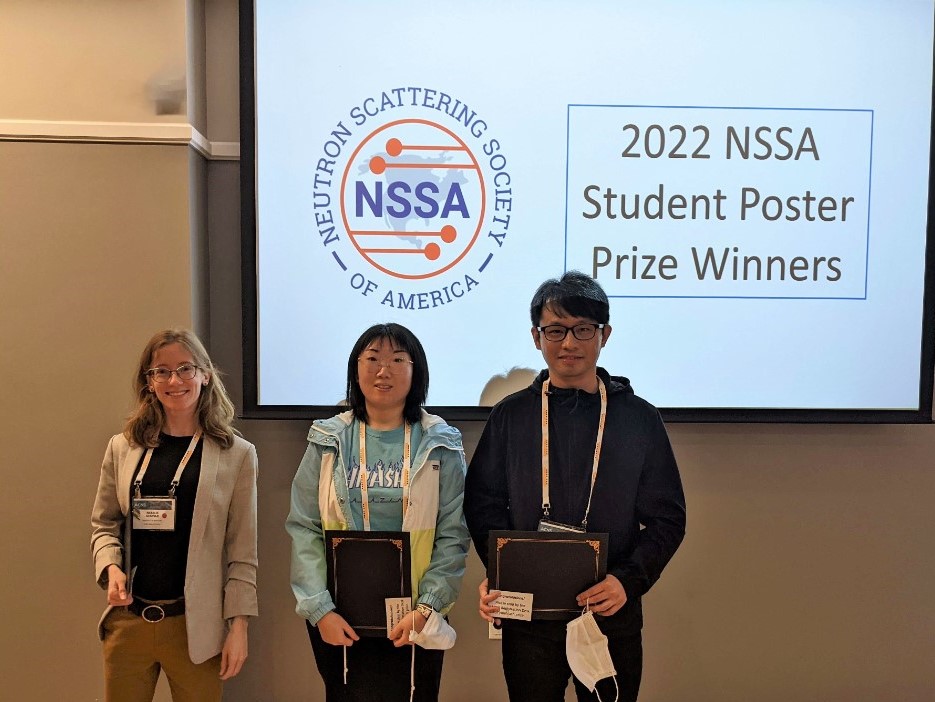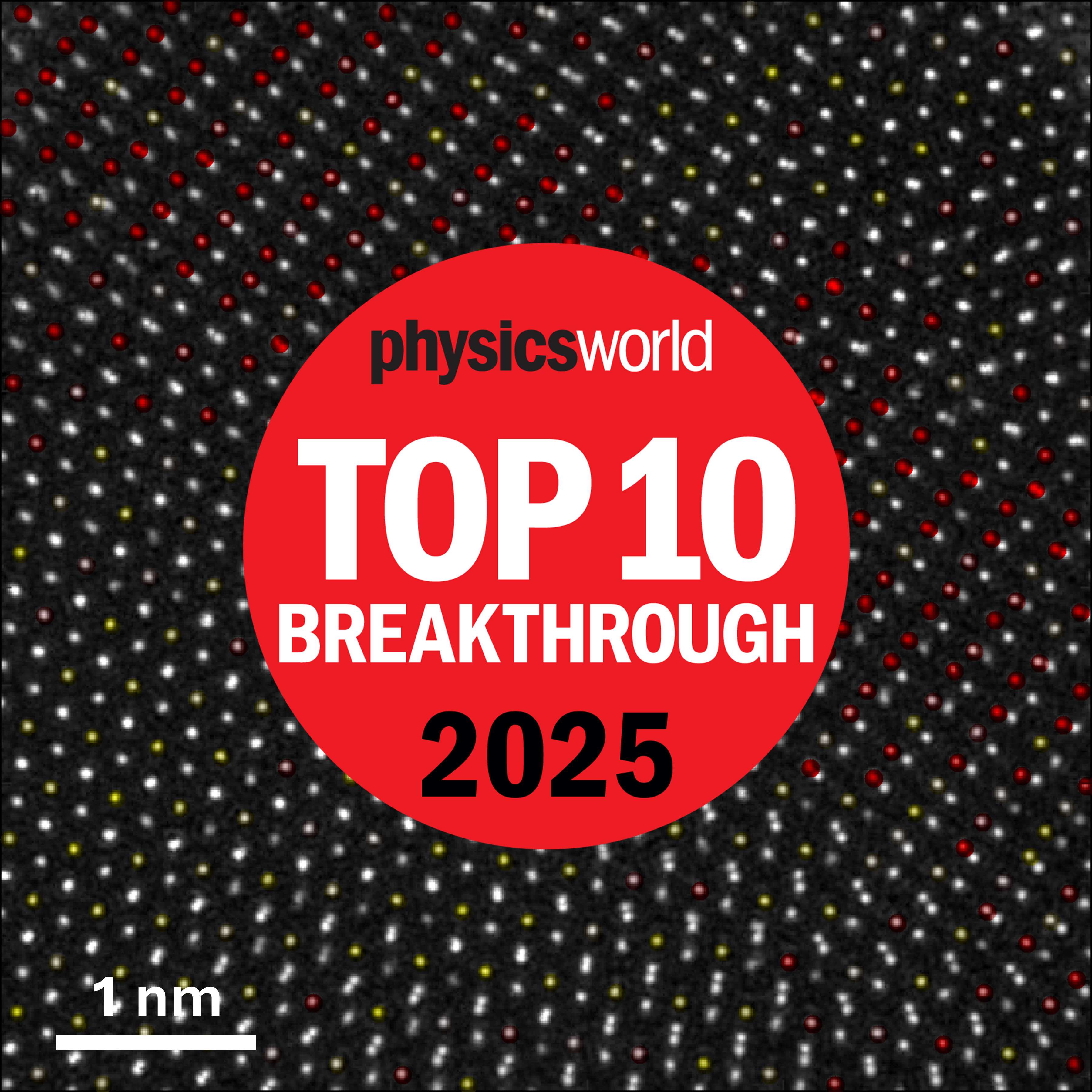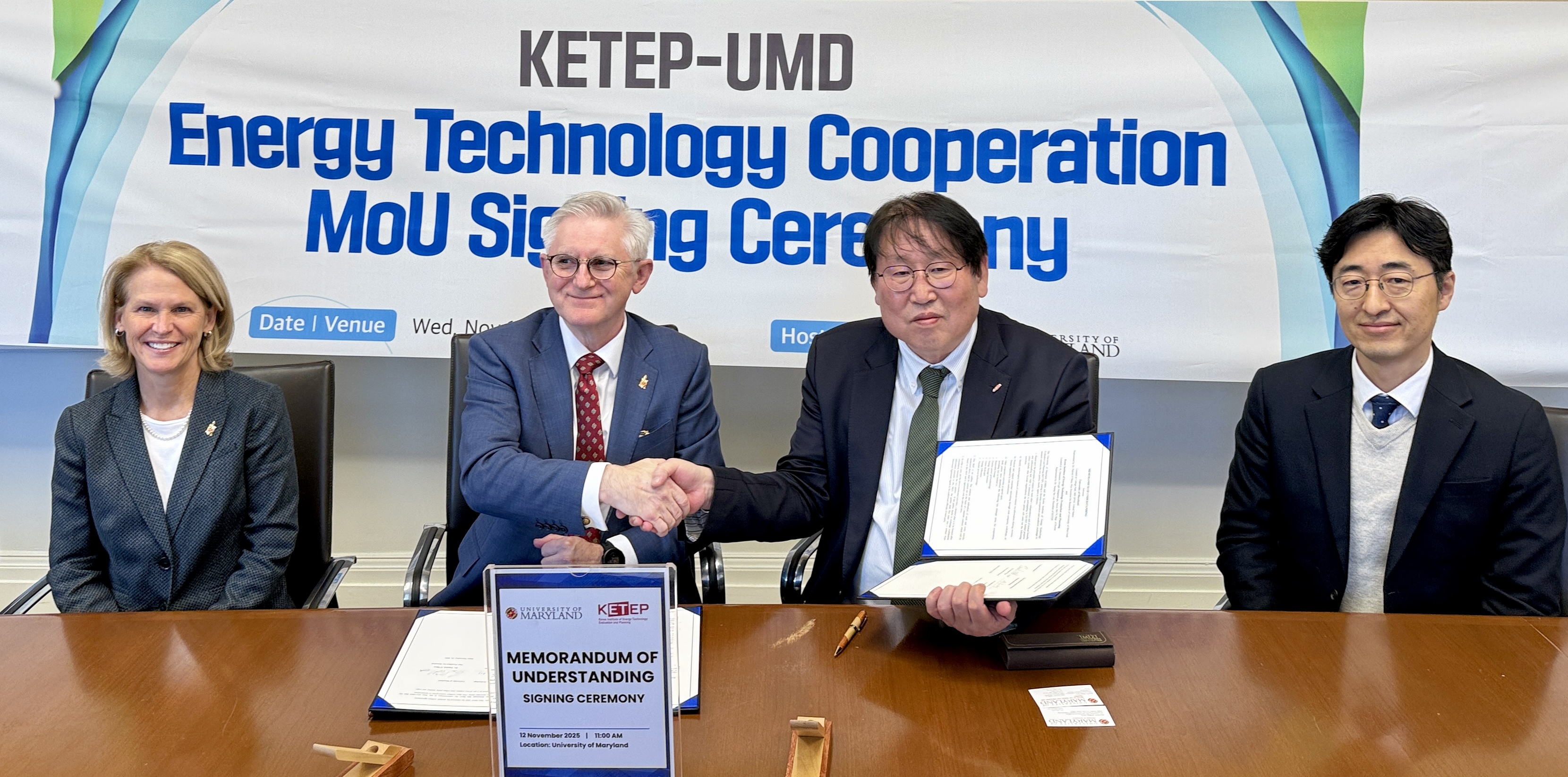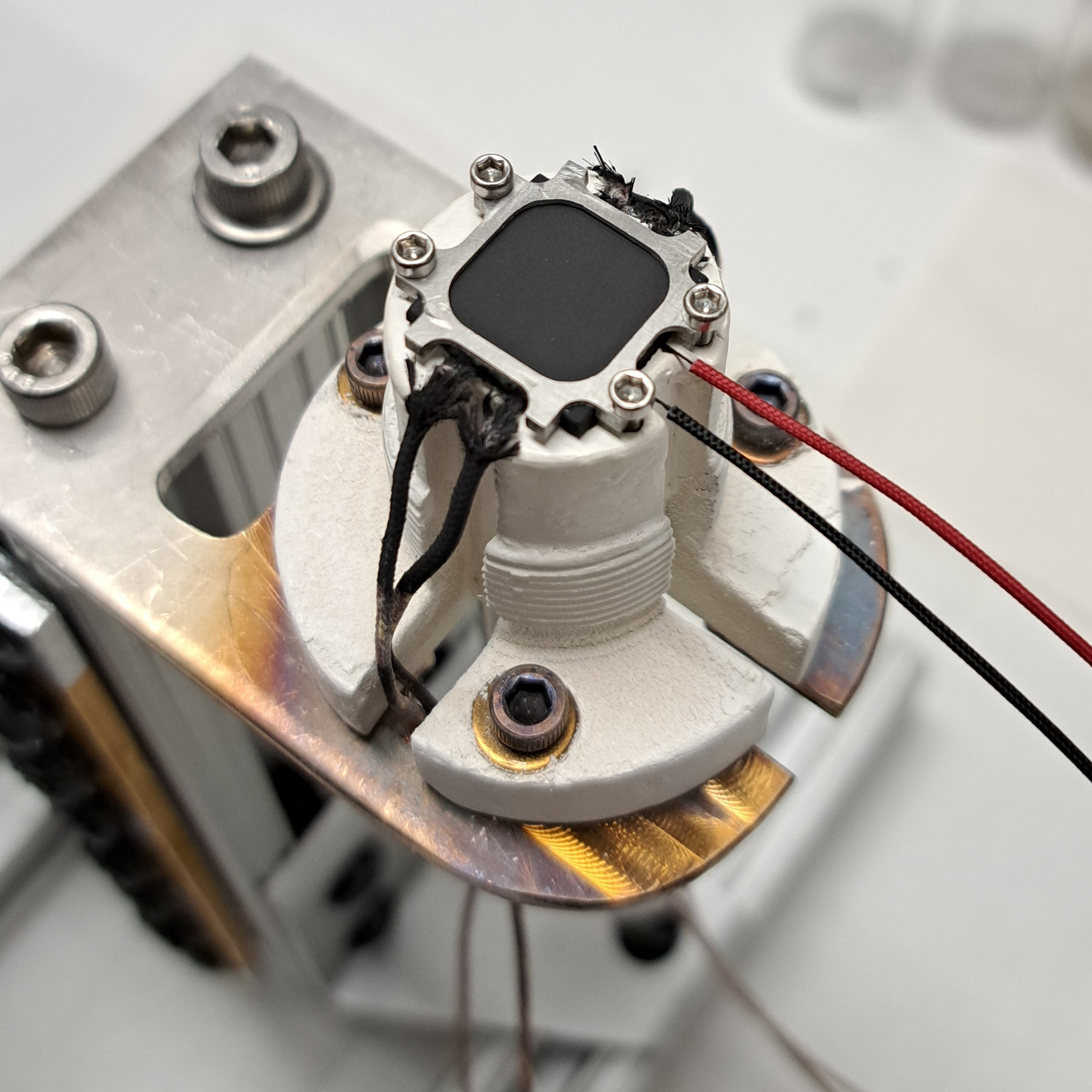News Story
Natalie Schwab Wins Outstanding Student Poster Presentation Award

Natalie Schwab is pictured far left.
Natalie Schwab, a Ph.D student in the University of Maryland (UMD) Department of Materials Science and Engineering (MSE), won an award for Outstanding Student Poster Presentation, offered by the Neutron Scattering Society of America, at the 2022 American Conference on Neutron Scattering. Schwab received the award for their research, entitled, “Analysis of Engineered Nafion Surfaces via Neutron Reflectometry.”
In a nutshell, the thin film structures of Nafion – a synthetic polymer used in fuel cell technology, called an ionomer– impact advances in proton-exchange membrane fuel cells (PEMFCs). A research team at the University of Kansas engineered synthetic Nafion surfaces to alter the surface composition and wettability of the material, making the Nafion more attractive or repulsive to water.
“Our group is analyzing the through-plane structure of neat vs. engineered Nafion thin films with hydrophobic and hydrophilic surfaces using neutron reflectometry (NR),” said Schwab. “We studied the Nafion films in both dry (0% RH) and humid (92% RH) environments. Then, fitted depth profiles of the thin films were used to identify the surface and interface structures, as well as independently determine differences in water uptake and swelling. We used titanium dioxide (TiO2) films on Si to minimize the neutron scattering contrast to Nafion interface structures, thus optimizing the sensitivity of NR to the presence of an engineered Nafion surface layer.”
The group recently obtained NR data from the Oak Ridge National Lab (ORNL) Spallation Neutron Source (SNS) on the engineered hydrophobic and hydrophilic Nafion thin films. Schwab is currently analyzing the SNS data and will compare it to the results from the untreated Nafion-TiO2 system.
“We look forward to seeing how NR can help us understand the distinguishing qualities of the engineered Nafion. For example, we can determine how thick the engineered region is and if this modified region persists across dry and hydrated environments,” Schwab said.
Schwab – who is co-advised by MSE Professor Robert Briber and Dr. Joseph Dura, an instrument scientist at NIST – was honored at the conference held in Boulder, Co., in June. They are expected to graduate in Spring 2024.
Additional authors on the project include Dr. Yuanchao Li and Prof. Trung van Nguyen at the University of Kansas.
Published June 28, 2022









